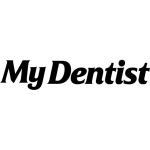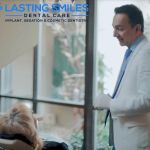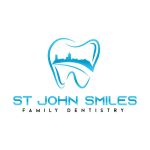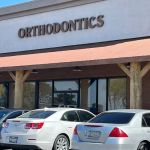Oral Cancer Prevention Techniques: How to Safeguard Your Smile
- 1. Understanding Oral Cancer and Its Risk Factors
- 2. The Importance of Early Detection in Oral Cancer
- 3. Effective Techniques for Preventing Oral Cancer
- 4. Lifestyle Changes to Lower Oral Cancer Risk
- 5. Real-Life Stories of Oral Cancer Prevention
1. Understanding Oral Cancer and Its Risk Factors
Oral cancer is a serious condition that affects the mouth, throat, and surrounding areas. It often begins as a small, unnoticed lesion, which can develop into a dangerous cancerous growth. Risk factors for oral cancer include tobacco use, heavy alcohol consumption, poor diet, and human papillomavirus (HPV) infection. While these factors increase the likelihood of developing oral cancer, lifestyle changes and preventive measures can significantly reduce the risk.
Awareness of the common signs of oral cancer, such as persistent sores, unexplained pain, or difficulty swallowing, is crucial for early intervention and better outcomes.
2. The Importance of Early Detection in Oral Cancer
Early detection of oral cancer dramatically increases the chances of successful treatment. The challenge lies in the fact that many oral cancer symptoms are not easily noticeable until the cancer has reached an advanced stage. Regular dental check-ups that include an oral cancer screening can help detect abnormal tissues before they develop into cancer.
Oral cancer screenings performed by a dentist or doctor involve visually inspecting the mouth, gums, and throat for any signs of unusual growths or changes. If abnormalities are detected, further tests such as biopsies may be performed to confirm a diagnosis.
3. Effective Techniques for Preventing Oral Cancer
Prevention is the most effective approach when it comes to oral cancer. There are several key techniques you can adopt to minimize your risk:
- Quit Smoking and Tobacco Use: Tobacco is one of the leading causes of oral cancer. Whether smoked or chewed, tobacco products increase your risk significantly. Quitting can drastically reduce your chances of developing oral cancer.
- Limit Alcohol Consumption: Heavy drinking, particularly when combined with smoking, further elevates the risk of oral cancer. Reducing alcohol intake is one of the most effective steps in preventing the disease.
- Regular Dental Check-ups: Annual dental visits, including oral cancer screenings, are crucial for early detection. Dentists are trained to spot the early signs of oral cancer and can advise you on the next steps if any issues arise.
- Healthy Diet: A diet rich in fruits, vegetables, and antioxidants can help boost your immune system and protect your body against cancer. Studies have shown that diets high in vitamin C and folic acid can lower the risk of oral cancers.
- HPV Vaccination: HPV is a major risk factor for oral cancer, particularly for those under 40. Vaccinating against HPV can reduce your chances of developing HPV-related oral cancers, especially in individuals who are sexually active.
4. Lifestyle Changes to Lower Oral Cancer Risk
Incorporating healthy lifestyle habits can greatly reduce your risk of oral cancer. Here are some effective lifestyle changes you can make:
- Practice Good Oral Hygiene: Brushing your teeth twice a day, flossing daily, and using an antibacterial mouthwash can help maintain oral health and reduce the risk of oral infections, which can be precursors to cancer.
- Stay Hydrated: Drinking plenty of water helps maintain moisture in the mouth, preventing dry mouth, which can increase your risk of developing oral health problems, including cancer.
- Protect Your Lips: The skin on your lips is just as vulnerable as the rest of your mouth. Wearing lip balm with sun protection can help prevent lip cancer, especially in those who spend extended time outdoors.
- Reduce Sun Exposure: If you spend a lot of time outside, ensure you wear sunscreen and a hat to protect your face, as sun exposure can increase the risk of lip cancer.
5. Real-Life Stories of Oral Cancer Prevention
Real stories of people who have successfully reduced their risk of oral cancer serve as a powerful reminder of the importance of prevention:
Case 1: Michael's Journey – Michael, a 45-year-old smoker, was diagnosed with early-stage oral cancer after a routine dental check-up. Thanks to his dentist’s vigilant screening, Michael’s cancer was caught in its initial stages, and he was able to undergo treatment and recover fully. After his experience, Michael quit smoking and now advocates for regular screenings.
Case 2: Lisa’s Healthy Change – Lisa, a 38-year-old woman, had a family history of oral cancer but made a significant lifestyle change after learning about the risks. She quit smoking, cut down on alcohol, and focused on a diet high in fruits and vegetables. Years later, Lisa remains cancer-free, and her oral health has never been better.
Case 3: John's Prevention Plan – John, a 28-year-old who was vaccinated against HPV, follows a healthy routine of brushing, flossing, and attending annual dental check-ups. His dentist detected no signs of oral cancer, and John continues to advocate for HPV vaccination as an essential part of cancer prevention.
If you want to take charge of your oral health and reduce the risk of oral cancer, start with small steps today. Schedule a consultation with your dentist for an oral cancer screening, learn more about prevention strategies, and implement healthy habits that can safeguard your smile. To learn more about oral cancer prevention techniques, visit Dentistry Toothtruth for expert advice and guidance.







 Two Front Teeth Family Dentistry - Dr. Elise Pham5.0 (41 review)
Two Front Teeth Family Dentistry - Dr. Elise Pham5.0 (41 review) My Dentist4.0 (982 review)
My Dentist4.0 (982 review) Lasting Smiles Dental Care4.0 (364 review)
Lasting Smiles Dental Care4.0 (364 review) St John Smiles4.0 (238 review)
St John Smiles4.0 (238 review) Swauger & Suiter Pediatric Dentistry4.0 (1010 review)
Swauger & Suiter Pediatric Dentistry4.0 (1010 review) Garner Orthodontics4.0 (334 review)
Garner Orthodontics4.0 (334 review) The Importance of Oral Health Education During Pregnancy for a Healthy Pregnancy
The Importance of Oral Health Education During Pregnancy for a Healthy Pregnancy Best Tips for Brushing Your Teeth Properly for Healthy Gums: Essential Techniques for Oral Health
Best Tips for Brushing Your Teeth Properly for Healthy Gums: Essential Techniques for Oral Health Why Skipping Dental Checkups Can Lead to Bigger Oral Health Problems
Why Skipping Dental Checkups Can Lead to Bigger Oral Health Problems Advantages of Porcelain Dental Restorations
Advantages of Porcelain Dental Restorations How Can Diabetes Cause Tooth and Gum Problems? Preventing and Managing Oral Health Issues
How Can Diabetes Cause Tooth and Gum Problems? Preventing and Managing Oral Health Issues Healthy Habits for Promoting Good Oral Health and Hygiene: Tips for a Healthy Smile
Healthy Habits for Promoting Good Oral Health and Hygiene: Tips for a Healthy Smile